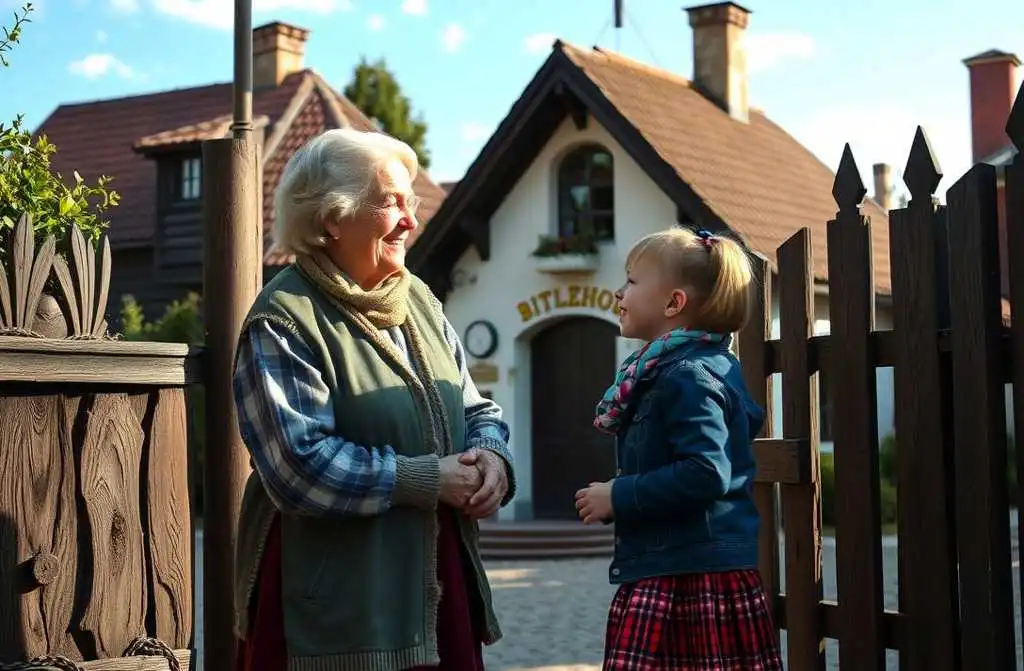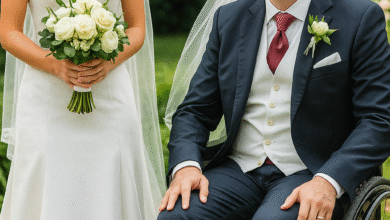“Grandma, mom said they’re going to take you to a nursing home.”

I heard my parents talking; a child wouldn’t make something like that up.
Ana Martínez was walking through the streets of a village near Toledo, on her way to pick up her granddaughter from school. Her face beamed with happiness, and her heels echoed on the pavement like they did in her younger years, when life felt like an endless melody. That day was special: she had finally become the owner of a bright and spacious apartment in a new building, after years of saving every euro. The sale of her countryside house had covered half the cost; the rest was contributed by her daughter Elena, though Ana had sworn to pay her back. At seventy, a widow, she managed with half a pension, while her daughter and son-in-law still had their whole lives ahead of them.

Lucía, her eight-year-old granddaughter, waited at the school gate, wearing pigtails and a bright smile. She ran into Ana’s arms as soon as she saw her. On the way home, they talked about silly little things. Lucía was Ana’s light, her treasure. Elena had her late, almost at forty, and asked her mother for help. Ana left her hometown—where every corner held memories—for them. She moved nearby and took care of Lucía: took her to school, picked her up, stayed until the parents got home from work, then returned to her small apartment. The property was under Elena’s name, “for security.” Ana didn’t mind—she thought it was just paperwork.
“Grandma…” Lucía looked up at her with wide eyes, “mom said they’re going to take you to a home.”
Ana froze, as if a bucket of ice water had been poured over her.
“What kind of home, sweetheart?” she asked, a chill running through her.
“The one where grandparents live. Mom told dad you’d be better there,” the little girl whispered, each word like a hammer blow.
“I don’t want to go! I’d rather go to a spa,” Ana replied, her voice trembling. She couldn’t believe it.
“Don’t tell mom I told you,” Lucía pleaded, hugging her tight. “I heard it last night. She said she already spoke to a lady, but they’ll take you once I’m a bit older.”
“I won’t say a word,” Ana promised, opening the door. Her legs were weak. “I have a headache… I’ll lie down for a bit. Go get changed, okay?”
She collapsed on the couch, heart racing, vision blurred. Lucía’s words had shattered her world. It was true—a child wouldn’t invent something like that.
Three months later, Ana packed her things and returned to her village. She now rents a small place and is saving up for a little house, supported by friends and distant cousins. But inside, she carries a heavy emptiness and pain.
Some whisper, “She should have talked to Elena.” But Ana knows the truth.
“A child doesn’t lie like that,” she says firmly, staring into the void. “Elena’s actions speak for themselves. She didn’t even call to ask why I left.”
Ana assumes her daughter understood, but chose silence. Ana waits. Waits for a phone call, an explanation. But she never dials the number herself—pride and anger hold her back. She doesn’t feel guilty, but the silence eats away at her. Every day she wonders: is this what’s left of all her love and sacrifice? Is her old age doomed to be forgotten?





